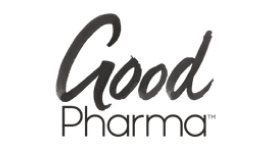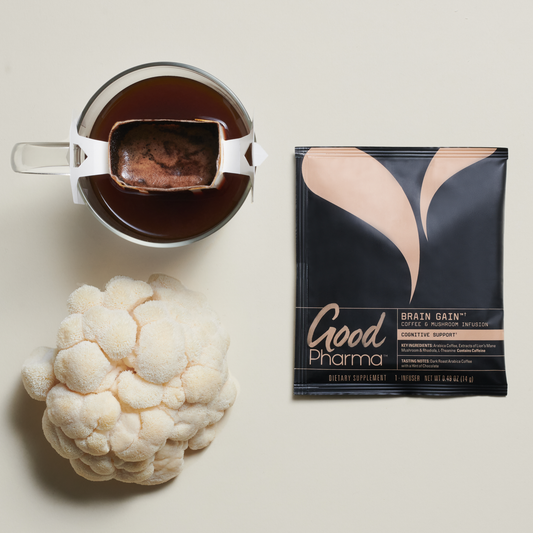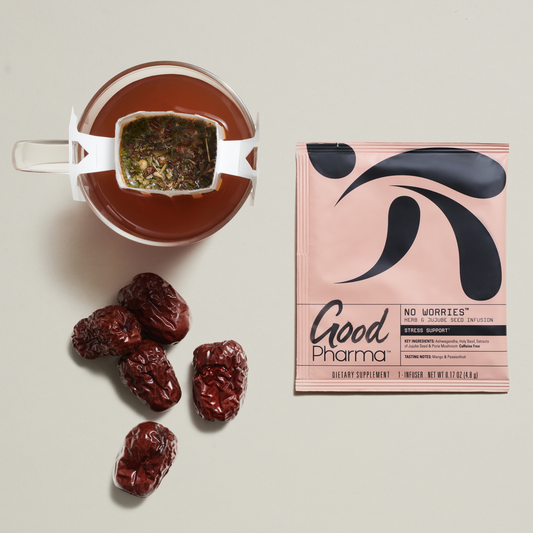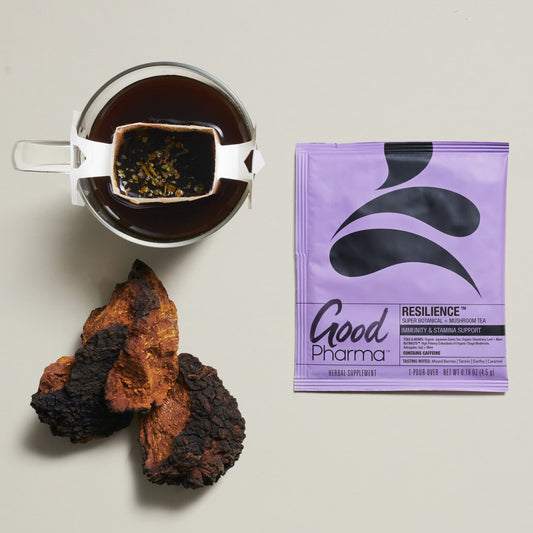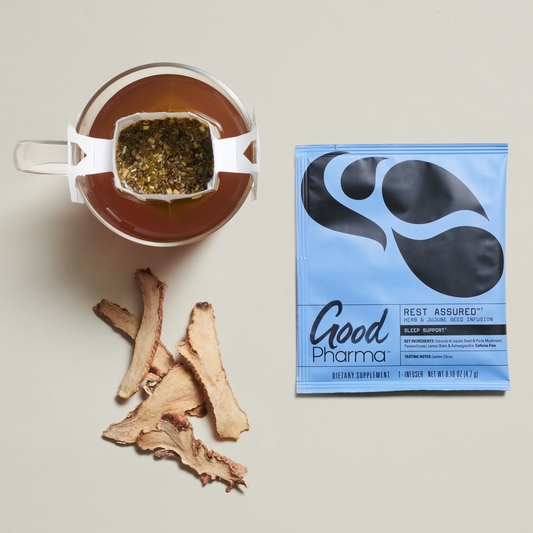What’s in a mushroom, per se? Mushrooms have been found to have many beneficial effects for nutrition and health, and key across all the mushroom types is a type of phytochemical called beta-glucans.
Mushrooms can come in either powder or extract form, and the difference in efficacy between the two is great (we suggest learning more about that here). Powders often offer the least health benefits because the essential beta-glucans need to be extracted from the cell walls of a mushroom. These cells are made of an indigestible fiber called chitin, which is insoluble to humans. Powdered mushrooms mean lots of chitin, which means you’re not getting the most bio-available nutrients found in the mushrooms.
At Good Pharma, we don’t use powders, but rather an extractive process that offers the most bio-available components of our functional mushrooms, providing the most efficacy to you in every sip.
Now, let’s dive in further on beta-glucans and mushrooms.
Beta-glucans are soluble fibers, or prebiotics, found in the cell walls of algae, bacterial, fungi, yeast and certain plants such as oats and barley. Beta-glucans can be obtained in the diet by eating foods such as whole grains, mushrooms, yeasts, seaweeds and algae, but also by supplementation.
The benefits they provide are mostly due to the fact that they are soluble and fermentable fibers that—in the process of digestion—slow gastric emptying, glucose absorption, act as a food for the microbiota (prebiotic), while also promoting immune health in the gut.
Due to the range of systems beta-glucans affect, they have been found to have health supporting roles for the heart, gut and immune system. The health-supporting evidence for beta-glucans is so strong that current US FDA regulations have approved health claims in foods when Beta-glucans are present in foods in higher amounts of at least 750 mg stating the food may reduce the risk of coronary heart disease, and recommends at least 3 grams of soluble fiber to lower blood cholesterol. Other areas where the supportive clinical data is showing promise include in promoting immune system health, blood sugar balance, satiety and supporting skin health.
Clinical studies on both yeast and mushroom-derived beta-glucans in healthy people undergoing chronic stressful lifestyles reported benefits of supporting the overall health, improvements to the measurements of vigor, as well as benefiting mood states.
For example, in a randomized double-blind controlled clinical study, yeast-derived beta-glucans administered to moderately to highly-stressed men and women were found to have better overall health, increased vigor, as well as decreased tension, fatigue and confusion.
As they come from multiple food sources, beta-glucans can be obtained throughout the day in meals, snacks and through supplementation. However, as beta-glucans are also rich in the so called “medicinal mushrooms”, such as Chaga, Reishi, Shiitake and Maitake mushrooms, why not enrich the diet with the multiple health benefits of these squishy powerhouses?!
---
This article features contributed content by Kerry Hughes. Kerry has a background in Ethnobotany and Biochemistry, with a Bachelor of Science degree in Biochemistry, and a Master of Science degree in Agriculture with an emphasis in Ethnobotany and Soil Science from California Polytechnic State University, San Luis Obispo, California. She is also a certified Clinical Herbalist by the Berkeley Herbal Center, and has helped to establish the school and teach at the Herbal Academy of New England. Read more about Kerry on our Science page.
